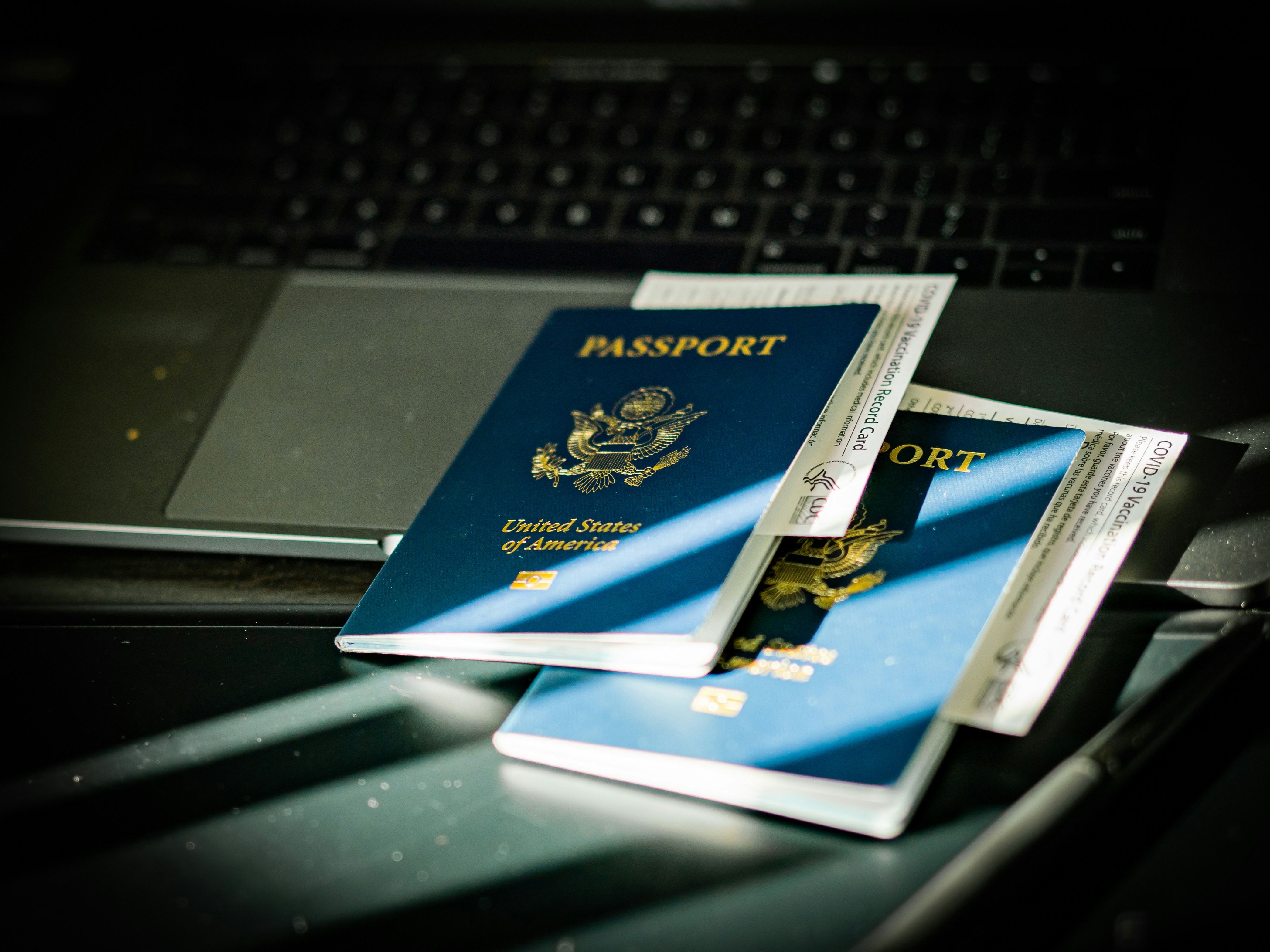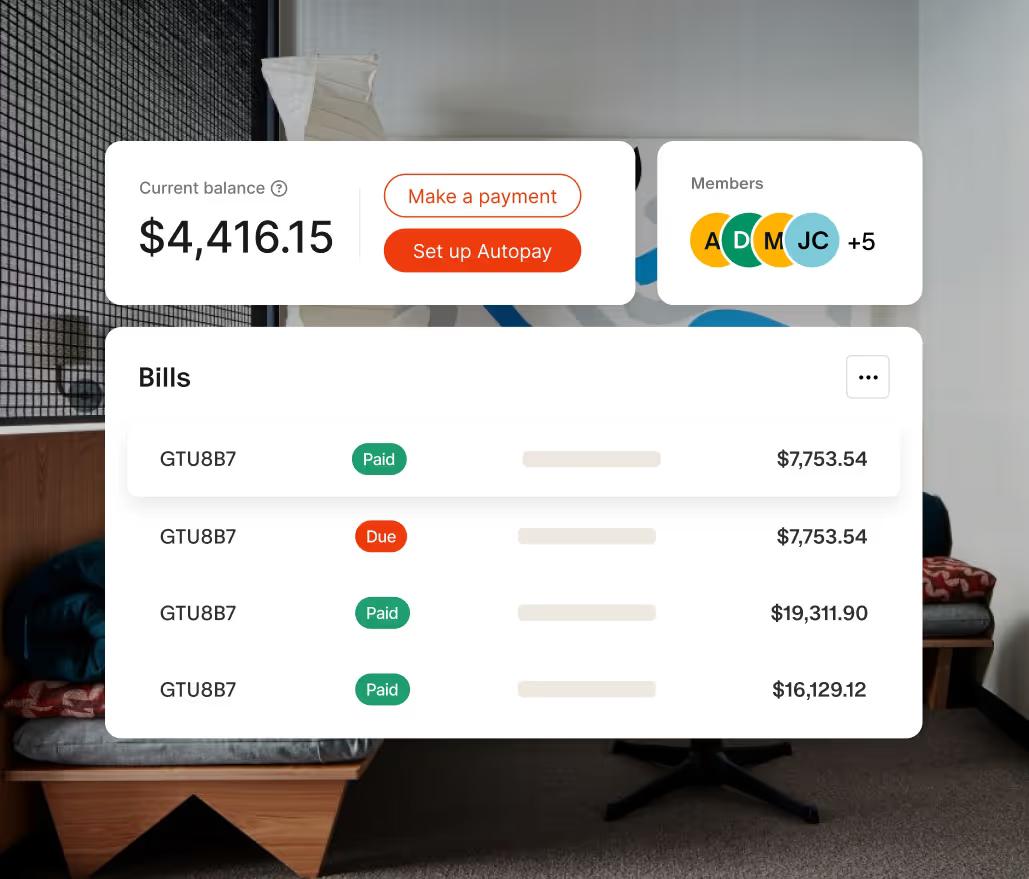Audit-Ready Travel Data: Build Compliance Into Every Booking

Your Finance team spends hours at month-end reconciling dozens of individual hotel bills from multiple vendors. Operations can't track whether teams stayed within per diem until the receipts arrive: usually 2-3 weeks after the trip. Meanwhile, you discover policy violations after the money's spent, when it's too late to do anything about it.
You’re a travel manager. So why are you managing chaos?
What Makes Travel Data Audit-Ready
Audit-ready travel data relies on more than just organized receipts in a folder. You need a consistent process for capturing, storing, and maintaining expense documentation that satisfies the IRS's four-element substantiation test (amount, time and place, business purpose, and business relationship) and passes professional audit scrutiny under federal tax law and SOX compliance standards.
According to Publication 463, every travel expense must document four core elements to meet federal audit standards:
Amount of Each Expense
Credit card statements showing "$147.50 - MARRIOTT DENVER" aren't enough. According to the IRS, you need itemized receipts breaking down room rates, taxes, and incidental charges.
This is one of the five core IRS substantiation requirements: amount of each separate expense, time and place, business purpose, business relationship (for entertainment), and documented proof.
Date the Expense Was Incurred
"Last month" doesn't cut it. IRS regulations require specific dates tied to business travel periods as part of the mandatory four-element substantiation test.
Records must be prepared "at or near the time" of the expense, generally meaning weekly recording, as expenses submitted months after travel are more likely to be challenged by auditors.
Complete Location Information
"Client meeting" needs to specify the city and state (e.g., "Phoenix, AZ") with enough detail to verify the business purpose. The "Time and Place" element requires documentation of the specific location where the expense was incurred to meet the four-element substantiation test.
Business Purpose
Generic entries like "travel" fail audits. You need specific justifications that meet IRS substantiation requirements: "Site inspection for Richardson construction project" or "Technical conference for equipment certification training."
Adequate records must substantiate the business purpose or expected business benefit of each expense. Vague or missing business purpose documentation is a primary reason travel data fails audit review, as it violates the IRS Four-Element Substantiation Test (Amount, Time and Place, Business Purpose, and Business Relationship). For meals and entertainment, document who attended, their titles, and their business relationship to your organization.
Finance teams should implement required fields in expense systems, preventing submission without explicit business purpose documentation.
Why Scattered Receipts Fail Audits
Your Austin crew checked out Tuesday. It's Friday and you still don't have the hotel folio. The project manager swears they stayed within per diem, but you can't prove it until Marriott emails the itemized receipt—which might take another week. Meanwhile, month-end close is Monday and your controller is asking for project cost reports.
According to KPMG's Evolving Audit, modern audits emphasize data integrity and control precision. Auditors expect organizations to demonstrate that expense data is accurately and thoroughly supported by source documentation.
But when crews book travel on traditional platforms, nothing connects flights, rooms, or car rentals to Project #4892. Three weeks later, you get a credit card charge labeled "HTL*3847 DENVER" with zero context. Which project? Which cost center? Which client?
You spend hours reconstructing history when you should be managing budgets. Project profitability reports become guesswork because travel costs aren't properly allocated. Without real-time controls, you're documenting damage already done.
This reactive approach to travel management creates a constant cycle of cleanup rather than prevention. To break free from this pattern, you need to shift from post-trip reconciliation to pre-trip compliance.
Build Compliance Into Every Booking
If you're still chasing receipts, you're solving the wrong problem. The real issue happens at booking: before any money changes hands. You can't fix overspending after the booking is confirmed and the crew is already checked in.
Automatic Policy Enforcement
Traditional booking tools show every available hotel and trust your employees to pick compliant options. They won't. Professional services firms commonly require original itemized receipts, airline receipts showing fare breakdown, and explicit business purpose statements—standards that manual processes may struggle to enforce consistently.
Effective policy enforcement blocks non-compliant options entirely. If it's not within policy, it doesn't appear in search results. Crews only see hotels within per diem rates, approved vendor networks, and proximity requirements for their specific project location.
This isn't about restricting choice: it's about making compliance the default. Out-of-policy spend becomes impossible instead of something you discover later.
Approval Workflows That Actually Work
Manual approval processes create bottlenecks and documentation gaps. Email chains with forwarded hotel confirmations fail to create audit trails meeting regulatory standards. Verbal approvals leave no evidence of authorization, violating Publication 463's requirement for documented substantiation of the amount, time, place, business purpose, and business relationship of expenses.
Engine's book-outside-policy feature lets travelers request exceptions when legitimate needs arise. They submit justification, managers review and approve in minutes, and the full approval record with timestamps and user identification creates audit trails meeting KPMG standards.
Travel policies enforce compliance automatically by showing only approved options at search. When crews need rooms outside policy limits, they submit exception requests with business justification. Managers review these requests and approve legitimate needs without waiting weeks for expense reports.
Direct Billing vs. Credit Card Reconciliation
The cash flow implications of employee reimbursement versus direct billing create significant financial advantages that most finance teams underestimate.
Direct Billing Advantages
According to TSYS research, direct billing results in an 88% reduction in processing expenses, reducing per-transaction costs from $58 to under $7.
- For organizations with $1M in annual travel spend, direct billing extends payment terms to approximately 30 days
- This creates a working capital advantage of approximately $82,000 compared to employee reimbursement models
- Employee reimbursement requires immediate cash reserves and faster reimbursement cycles
Direct billing requires credit approval from Engine before activation. Once approved, Engine pays suppliers directly and sends one consolidated monthly invoice with net payment terms.
Employee Reimbursement Costs
Employee reimbursement creates working capital drain. Your company maintains cash reserves to pay employees immediately while waiting weeks for expense reports and receipt validation.
According to treasury management research, effective corporate travel management can significantly reduce the administrative burdens and cash flow constraints associated with legacy expense-reimbursement models, though specific figures for optimal rolling cash reserves and per-report processing costs may vary by company and are not universally established.
Working Capital Benefits
Direct billing extends Days Payable Outstanding by approximately 30 days, effectively providing working capital benefits: a significant efficiency gain. You're paying vendors through consolidated invoices with net payment terms rather than immediate cash outlays for employee reimbursements.
For a mid-sized company with $1M annual travel spend, this translates to approximately $80,000 in extended working capital availability, representing roughly a 22% efficiency advantage compared to employee reimbursement models.
Processing Efficiency
The processing cost differential is dramatic. Manual expense report processing costs $58 per report, while automated direct billing processes transactions under $7 each: an 88% cost reduction.
The Finance Team Benefits
Real-time travel data visibility fundamentally changes how finance teams operate, shifting focus from transaction processing to strategic analysis.
Eliminate Reconciliation Chaos
Before switching to Engine, RMS Energy faced two costly problems: forfeited bookings when project timelines shifted, and finance team hours chasing receipts for month-end reconciliation. Direct billing improved reconciliation efficiency by automating invoice processing and consolidating multiple contractor receipts into a single monthly invoice, delivering substantial operational savings.
One consolidated invoice covering every trip. Audit-ready data with no manual reconciliation. Every booking tagged to the right project code automatically. No more spreadsheet archaeology.
Finance teams typically spend 15-20 hours monthly on travel expense reconciliation. Instead of matching credit card charges to hotels, hunting for missing receipts, and manually coding expenses to projects, you get pre-labeled transactions with complete supporting documentation attached.
Accurate Project Cost Allocation
When your field supervisor books 12 rooms for a crew rotation, does Finance know about it before or after the charge hits? Without project tags at booking, you inherit cleanup work that should never exist.
Modern platforms tag expenses at booking. Your crew lead selects "Project #4892" from a dropdown before completing the reservation. That code attaches automatically: no spreadsheets, no memory required. Every dollar carries its project identifier from booking through invoice.
This enables accurate project profitability analysis. "What did we spend on the Richardson project?" becomes a two-click report instead of hours of spreadsheet archaeology matching credit card transactions to job sites.
Audit Confidence and Risk Mitigation
Using the right travel management platform minimizes the sort of audit findings that trigger expanded scope examinations. Complete documentation from the point of booking, automated policy compliance, and tamper-proof digital storage eliminate the common violations that add $25,000+ in additional external audit fees.
Your audit prep shifts from document hunting to report generation. When auditors request travel documentation for Q2, you export complete records in minutes instead of spending weeks reconstructing paper trails.
Choose Technology That Delivers Audit Trails
Not all travel platforms create audit-ready data. Traditional booking platforms provide transaction receipts but no business context. Enterprise systems often require months-long implementations and dedicated travel administrators.
Essential Platform Features for Finance Teams
Consolidated invoicing that combines all hotel charges into one monthly statement with project codes, cost centers, and approval history attached. This eliminates manual reconciliation across multiple vendors and creates single-source audit documentation.
Real-time policy enforcement that prevents violations at booking rather than documenting them after the fact. Systems should block non-compliant options entirely while maintaining booking simplicity for operations teams.
Complete audit trails capturing every transaction, approval, modification, and cancellation with user identification and timestamps. Federal regulations, including 26 CFR § 1.274-5A and SOX Section 802, require this level of documentation for audit defense and tamper-proof record retention.
Integration with accounting systems through APIs or batch synchronization that maintains data integrity. Your travel data should flow directly into project accounting and general ledger without manual entry or reformatting.
Receipt capture and storage with OCR technology that extracts vendor name, date, amount, and expense category automatically. Digital receipts should be stored in secure, tamper-evident formats with detailed audit trails—best practices recommended by major audit firms and industry standards.
Avoid Common Technology Selection Mistakes
Evaluating platforms solely on booking ease ignores compliance requirements. The cheapest option becomes expensive when audit preparation requires manual documentation reconstruction.
Similarly, enterprise platforms requiring dedicated travel administrators create operational bottlenecks. Your field supervisors need to book crew rotations in minutes, not navigate complex approval hierarchies.
The optimal solution balances operational simplicity with financial control. Teams can book compliant travel in under two minutes while Finance gets audit-ready data automatically.
According to insights drawing on Gartner's technology research, finance leadership should focus on measurable business outcomes, aligning technology with KPIs, and connecting tech investments to business impact and ROI for effective platform assessment.
Stop Chasing Receipts and Start Controlling Costs
Building compliance into every booking eliminates the chaos of month-end reconciliation while providing the audit-ready documentation that regulators demand. Your finance team shifts from processing transactions to analyzing trends and protecting margins.
Direct billing, automatic policy enforcement, and integrated audit trails turn travel management from an administrative burden into financial control. You get total visibility over every booking and dollar spent with one consolidated monthly invoice.
Ready to eliminate receipt chaos? Engine's platform enforces travel policy at booking, consolidates all charges into audit-ready invoices, and provides the complete documentation that survives regulatory scrutiny. Book your first trip in under two minutes and discover what audit-ready travel data looks like.

Frequently Asked Questions
What documentation do auditors require for travel expenses?
Auditors require the amount of each expense, date incurred, location, business purpose, and business relationship for entertainment. Original itemized receipts are required for lodging regardless of amount, and for any expense over $75. Credit card statements alone provide insufficient documentation: you need detailed receipts with contemporaneous business purpose notes.
What's the difference between consolidated invoicing and scattered credit card statements?
Consolidated invoicing provides clear audit trails with project codes, approval history, and business purpose documentation in a single monthly statement. Credit card statements show only dates, amounts, and vendor names without itemization or business context required for audit compliance.
How do we calculate ROI for audit-ready travel platforms?
Calculate current costs for manual reconciliation, audit preparation expenses, and working capital impact of reimbursement delays. While exact figures can vary, organizations have reported significant working capital advantages and reductions in processing costs by leveraging billing optimization solutions.




.jpg)




.jpg)








![What is an OBT? [+ Why They Matter]](https://cdn.prod.website-files.com/66a41388b1be9ba182f1e80c/66f97c4190ac5e26bea90c05_66a41388b1be9ba182f1efc0_online-booking-tool.avif)








